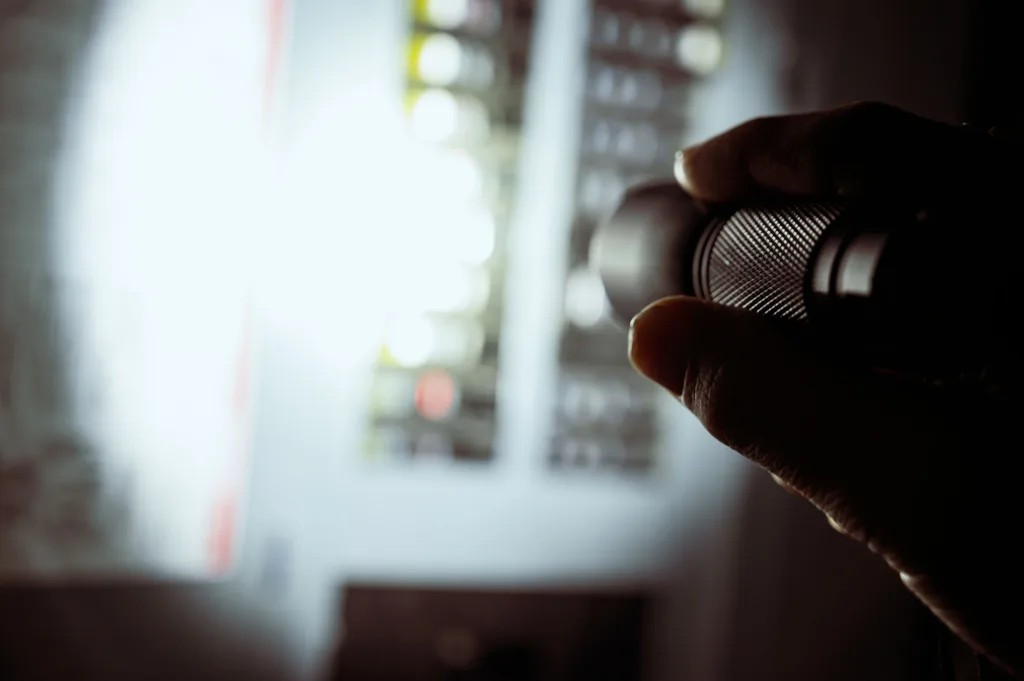Electrical emergencies rarely give you a heads-up. One minute everything’s working fine, the next you’re dealing with sparks, blown fuses, or a complete blackout. These issues can be more than just an inconvenience—they pose real dangers to your property and personal safety. Knowing what to do in these situations is not just helpful, it’s essential.
Most of us don’t think about our electrical systems until something goes wrong. And when it does, there’s usually panic, uncertainty, and a lot of guesswork. This article will help you understand the most common types of electrical emergencies, how to respond effectively, and why swift professional assistance could make all the difference. We’ll also highlight preventative tips and what to expect from emergency electrical services in the UK.
Electrical Emergencies
What Qualifies as an Electrical Emergency?
An electrical emergency is any fault or failure that poses an immediate risk to people or property. It’s not just about inconvenience—it’s about danger. This includes things like live exposed wires, persistent burning smells from sockets, or frequent circuit breaker trips. If something feels wrong and seems unsafe, it probably is.
Other warning signs may include buzzing noises from the consumer unit, lights flickering without reason, or a partial loss of power that doesn’t affect your entire property.
Common Causes of Urgent Electrical Faults
- Overloaded circuits due to too many appliances on one socket
- Faulty or deteriorating wiring, especially in older homes
- Water exposure causing short circuits or corrosion
- Electrical faults during storms or power surges
- Rodent damage leading to chewed wires or exposed conductors
Sometimes the issue could be traced back to improper DIY work or outdated electrical installations that no longer meet modern safety standards.
Types of Electrical Emergencies at Home and Work
Domestic Emergencies
In the home, warning signs can be subtle or sudden. For example, you might smell plastic burning near a socket or notice scorch marks. Other red flags include:
- Repeatedly tripping RCDs (residual current devices)
- Sockets or switches that are hot to the touch
- Sparks when plugging in devices
- Complete power loss without a local outage
If you ever notice any of these signs, turn off the mains power immediately and call an emergency electrician.
Commercial and Industrial Risks
In business settings, the risks are amplified due to higher voltages, complex systems, and critical operations. A fault in an office, factory, or retail outlet could disrupt productivity, damage equipment, or even start a fire.
Key concerns include:
- Overloaded machinery circuits
- Emergency lighting failures
- Trip hazards from loose cabling
- Unplanned shutdowns due to power surges or system faults
The consequences for businesses extend beyond safety—they can affect regulatory compliance and even insurance cover if not handled properly.
First Steps in an Emergency
Immediate Actions to Take
The first thing to remember in any electrical emergency is not to panic. If you spot sparks, smell burning, or experience a sudden power loss, head straight to your consumer unit and turn off the main switch. This cuts the power supply and reduces the risk of fire or electric shock.
Avoid touching any wires, appliances, or outlets that appear damaged. If water is involved, such as in a flood or leak near sockets, stay away completely until a qualified electrician can assess the danger. It’s also wise to keep others—especially children and pets—well clear of the affected area.
If safe, document the issue with your phone. Photos or notes can be helpful when explaining the problem to a professional.
Do’s and Don’ts While Waiting for Help
Here are some quick rules to follow before an emergency electrician arrives:
Do:
- Turn off the mains power
- Open windows if you smell burning or chemicals
- Isolate the affected area
- Keep a torch handy during a blackout
Don’t:
- Attempt DIY repairs, even if it seems minor
- Use water to put out electrical fires (use a fire extinguisher rated for electrical use)
- Ignore repeated RCD tripping—it could indicate a serious fault

Why Timely Electrical Intervention Matters
When it comes to electrical faults, time really is of the essence. Delaying action can allow small issues to spiral into large-scale hazards. A buzzing socket could lead to an electrical fire. A flickering light might be linked to faulty wiring behind the walls.
In the UK, there are strict safety standards in place to protect households and businesses. The IET Wiring Regulations (BS 7671) outline the legal requirements for all electrical installations. According to the Health and Safety Executive (HSE), failure to comply with these regulations could result in prosecution if negligence is proven after an incident.
On a practical level, fast intervention prevents damage to your electronics, reduces fire risk, and ensures the continued safety of your home or workplace. It also ensures you meet insurance requirements, as most policies insist on professional repairs being carried out by a certified electrician.
Preparation Tips to Prevent Emergencies
Routine Inspection and Maintenance
Preventing electrical emergencies starts with proper maintenance. Just like a car needs regular servicing, so does your property’s electrical system. A qualified electrician can inspect your consumer unit, wiring, sockets, and switches for wear and tear, loose connections, or outdated components.
Annual checks are especially important in older homes or rental properties. Landlords are legally obliged to carry out Electrical Installation Condition Reports (EICRs) every five years—or sooner if required. Catching problems early saves money and drastically reduces the risk of future emergencies.
It’s also smart to test RCDs monthly to ensure they trip correctly. This takes seconds but could save lives.
The Role of Emergency Lighting and Safety Systems
In commercial or public premises, emergency lighting plays a vital role. If the power fails, it helps people exit safely and quickly. Emergency lighting systems need to be tested regularly to ensure they’re operational during an outage.
We’ve worked on many such projects, including Emergency Lighting Replacement and Testing at Cornwall Nursery, where we upgraded systems to meet current standards. It’s one of the simplest yet most effective ways to improve safety in a building.
Regular servicing of fire alarms, smoke detectors, and backup power sources should also be part of your safety checklist.
When to Call Professional Emergency Services
Signs That You Need Urgent Electrical Help
So, when is it time to stop troubleshooting and call an emergency electrician? Here are the unmistakable signs:
- Sparks from sockets or switches
- Sockets buzzing or humming
- Persistent burning smells with no clear source
- Water exposure to electrics
- Repeated tripping of circuit breakers or RCDs
- Sudden loss of power not linked to the grid
Even if you’re unsure, it’s safer to have it checked by an expert than to guess wrong. A small cost now could prevent a far more serious and expensive outcome later.
How Qualified Electricians Handle Emergencies
Professional electricians come equipped not just with tools, but with diagnostic knowledge. They’ll assess the risk, isolate the fault, and ensure repairs comply with UK safety standards. Their priority is safety—yours, your property’s, and theirs.
For instance, our team at Wave Electrical is trained in both domestic and commercial emergency response. Whether it’s late at night or during a holiday, we respond fast and get the job done properly.
You can view the range of Emergency Electrical Services we offer across Cornwall and surrounding areas.
Choosing the Right Electrician for Emergencies
Credentials, Availability, and Response Time
When you’re in the middle of an electrical emergency, the last thing you want is to waste time scrolling through endless listings. What matters is knowing who you can trust. A competent emergency electrician should be NICEIC-registered or accredited by a similar body, with up-to-date insurance and solid reviews.
Availability is key—does the company offer true 24/7 response, or do they just say they do? You also want someone who answers the phone, asks the right questions, and gives you realistic expectations about arrival time and resolution.
Wave Electrical Solutions provides all of that. Our emergency team is known for its speed, professionalism, and clarity. We believe in fixing faults properly—not patching them up for a later issue. If you need support now, get in touch with our team.
Why Local Experts Like Wave Electrical Are Ideal
Using a local electrician has obvious benefits. We know the area, understand the typical issues, and can get to you faster than a national provider. Plus, we care about our community. When you call us, you’re getting a technician who’s worked in homes and businesses just like yours—not a faceless callout service.
Being nearby also means we can follow up easily, offer preventative solutions, and even carry out future work with minimal disruption.
FAQs
What should I do if I smell burning from a socket?
Turn off the mains power immediately and avoid using the socket. The burning smell likely indicates overheating or an internal short. Do not attempt any repairs—call an emergency electrician straight away.
Can I fix a tripped circuit breaker myself?
You can reset it once, but if it trips again, there’s probably a fault. Repeated tripping is a warning sign of something more serious, like a wiring issue or overload, and should be investigated by a professional.
Are emergency callouts more expensive?
Typically, yes—because they involve out-of-hours visits and rapid response. However, the cost is justified by the safety risks involved. Delaying a repair could lead to fire, damage, or injury.
Conclusion
Electrical emergencies are unpredictable, but how you prepare and respond makes all the difference. By understanding what to look out for, acting swiftly, and relying on qualified electricians, you greatly reduce your risk.
Prevention is always better than reaction. Schedule regular inspections, know your consumer unit, and make sure your emergency lighting and safety systems are up to date. A few proactive steps today can spare you the stress and cost of a full-blown crisis.
And if trouble does strike? Have a trusted name in your contacts. Wave Electrical Solutions is here when you need us—day or night, rain or shine. Speak to our team to find out how we can help safeguard your property.










